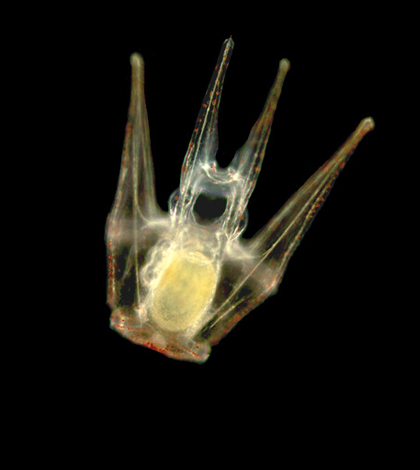Rapid evolution helps sea urchins cope with ocean acidification

Scientists at Stanford University have discovered that some purple sea urchins living along the coasts of California and Oregon can rapidly evolve in acidic ocean water, according to a release. The ability appears to come from high levels of genetic variation among urchins.
The researchers raised urchin larvae in ocean water containing either low or high levels of carbon dioxide. Sampling was done at early and late stages of life and DNA sequencing was used to determine the changes that came about in the urchins’ genetic makeup.
As climate change continues to spur ocean acidification, experts say creatures that can adapt to the new condition will thrive, making genetic adaptability favorable. The Stanford scientists say the urchin species is hedging its bets – some are gaining the ability to rapidly evolve, while others aren’t.
Image: Urchin larva grown at high CO2 levels (Credit: Stanford University)





0 comments